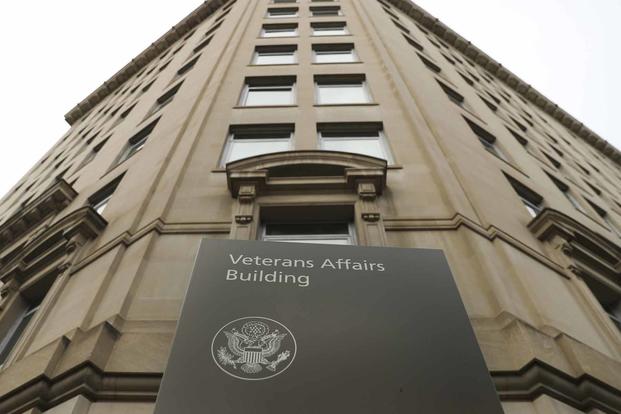The Department of Veterans Affairs is chipping away at a disability claims backlog that ballooned during the pandemic, but it doesn't expect to achieve pre-pandemic levels until late next year, officials said last week.
Part of the strategy includes providing staff to support records retrieval and digitization, as well as paying for overtime at the National Archives and Records Administration, according to the VA.
Of roughly 520,000 pending VA claims for disability compensation and benefits, 191,000 are considered to be backlogged, or older than 125 days. While the number is down by roughly 10% from earlier this year, it far exceeds the 77,000 cases that were considered backlogged in March 2020 as the COVID-19 pandemic struck.
Related: Air Force Vet Reality Winner Freed from Prison After Four Years, Attorney Says
The number could grow as the department receives claims applications for three conditions added to the list of illnesses related to Agent Orange exposure; it is also weighing claims from roughly 60,000 "Blue Water" Navy veterans or their survivors over the herbicide.
But even as the VA anticipates the new claims, it is aiming to keep the backlog under 200,000 by the end of this year and 100,000 by late 2022, said Kenneth Smith, assistant deputy under secretary at the Veterans Benefits Administration.
"We're working to get these claims processed. ... Our workload is very dynamic," Smith said during a call with reporters last week.
To process a disability claims application, VA adjudicators use a variety of documents, including military personnel records obtained from the National Personnel Records Center at the National Archives and Records Administration.
But much of the work at the NPRC stopped during the pandemic, with 90% of the staff sent home. The center's records request backlog rose from 62,000 in March 2020 to 480,000 a year later.
The VA estimates that more than 25,000 of those requests are for personnel records related to VA claims.
To facilitate the center's return to work, the VA in April sent medical and administrative staff to vaccinate NPRC personnel who work with veterans' records.
The VA also has temporarily assigned roughly 60 staff members to the National Archives to retrieve paper records and scan them into digital files. Working together, VA and archives processors are now responding to records requests in "three to four days" -- a "faster response time than we were achieving actually prior to the pandemic," Smith said.
The VA also received $272 million in the American Rescue Plan law to address its claims and appeals processing, including $150 million to digitize records and to cover the overtime required to accelerate records retrieval.
The NPRC backlog has drawn attention from members of Congress, who have urged the center to return to work. As of March 31, about 25% of the center's employees and contractors were working on site.
Rep. Mike Bost of Illinois, the ranking Republican on the House Veterans Affairs Committee; Rep. Deborah Ross, D-N.C.; and 183 other members of Congress wrote President Joe Biden and Archivist of the United States David Ferriero urging them to reopen the center.
"It's past time for the National Personnel Records Center to resume their normal operations in a safe manner," Boat said in the letter. "Without question, the NPRC provides an essential service."
The VA last faced a major claims backlog a decade ago, when it received thousands of new claims from Iraq and Afghanistan veterans as well as Vietnam veterans seeking disability compensation for Agent Orange-related conditions.
That backlog, which began ballooning in 2011 and rose to more than 600,000 claims in early 2013, prompted then-VA Secretary Eric Shinseki to pledge to eliminate it by the end of 2015.
The backlog was reduced to roughly 75,000 by December 2015, where it basically remained until the pandemic.
-- Patricia Kime can be reached at Patricia.Kime@Monster.com. Follow her on Twitter @patriciakime.
Related: Biden Signs Sweeping New Law Allowing VA to Vaccinate All Veterans, Spouses













